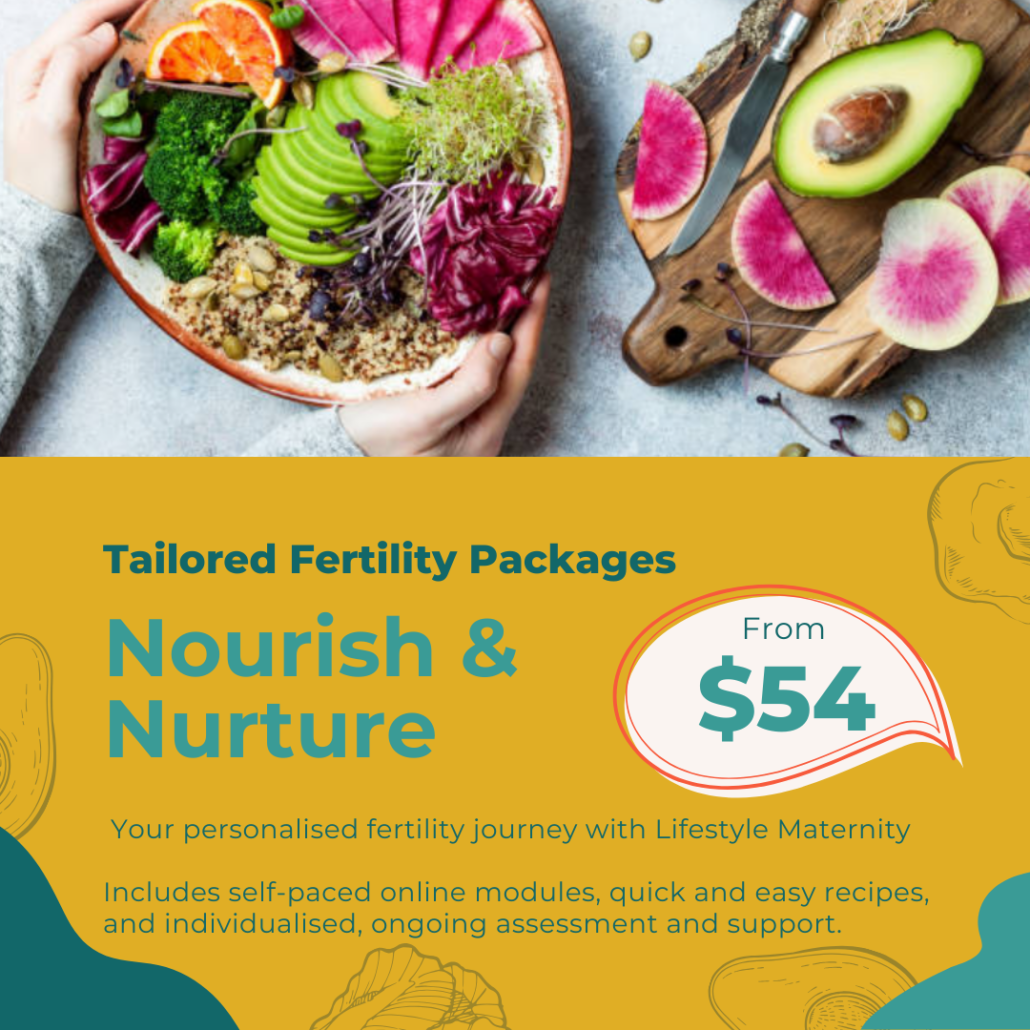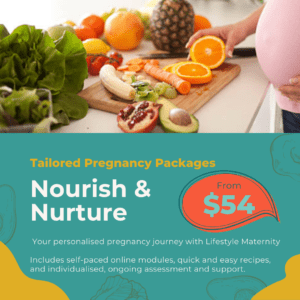Recently, our Director and Principal Dietitian, Dr Shelley Wilkinson and her colleagues published a scientific paper. This paper looked at what supplements women were taking in pregnancy.
In the lead up to this analysis of the women’s diets in the Queensland Family Cohort Study they knew that multiple micronutrient (MMN) use in low and middle-income countries improved gestational weight gain, birth weight and was thought to reduce preterm births, BUT the potential benefits and/or harms high-income countries was not clear.
Dr Shelley and her colleague, Dr Linda Gallo did a podcast with the MJA talking about what was found. Have a listen to hear what was discussed.
Why is there confusion about what supplements to take?
Many women want assurance that their nutritional needs are being met. Supplements are often seen as a more efficient way of obtaining required nutrients compared with food.
In a study by Malek and colleagues, supplement users had low confidence that their nutritional needs were being met. Over 80% took a multiple micronutrient supplement aka ‘pregnancy multivitamin’ during pregnancy. Women suspected what they ate wasn’t very nutritious. They worried they weren’t getting enough things like green leafy vegetables or red meat. Women also felt they lacked the knowledge to decide whether what they ate was enough and was balanced.
The influence of the strong advertising dollar.
Companies spend thousands upon thousands of dollars trying to convince people to buy their products. Advertising is a powerful tool that can influence our thoughts, feelings, and behaviours. It works by manipulating various psychological techniques to create a compelling story that resonates with consumers. Some of the ways that advertisers do this are:
- Emotional Appeal: Ads often evoke strong emotions like happiness, fear, or nostalgia. By tapping into our emotions, advertisers can create a personal connection with their target audience. With pregnancy supplements this is often pitched as “just in case” or “peace of mind”.
- Social Proof: People are more likely to follow the crowd. Ads often feature satisfied customers or celebrities to demonstrate that others are enjoying the product or service.
- Scarcity and Urgency: Creating a sense of limited availability or time can increase perceived value and encourage immediate action. Pregnancy is for a relatively short period of time … you don’t have to do this “forever”, just for the nine months or so….
- Repetition: Repeated exposure to an ad can make it more familiar and memorable, increasing its effectiveness. This is where flyers in pharmacies, ‘Bounty Bags’, antenatal clinics etc etc come in.
- Targeting: Advances in technology allow advertisers to target specific demographics, interests, and behaviors, making their messages more relevant and impactful. Hello Meta algorithm!?!
What does the science say about supplements versus a food first approach?
We are all familiar with the phrase, “you can’t out train a bad diet” meaning exercise can’t make up for poor dietary habits in the long run; similarly, you can’t “out supplement a bad diet”.
The increases in five food group serves in pregnancy address the increases in most nutrient requirement changes in pregnancy; an extra 2.5 serves from the grains group and 1 extra serve from meat and alternatives group.
In pregnancy it’s important to remember, in the majority of cases, that we need to take a food first approach. Supplements should not substitute a wholefood diet.
There are benefits to eating a variety of foods, which contain many complementary nutrients and other compounds we cannot obtain from supplements.
We don’t have one of our dietary guideline as “eat a wide variety of nutritious foods” for nothing.
However, there IS strong evidence on taking SPECIFIC NUTRIENTS in the lead up to and during pregnancy that has DEMONSTRATED EFFECTS on pregnancy outcomes.
What nutrients do I need to supplement in pregnancy?
There is high certainty evidence that folic acid supplementation ≥400 µg per day preconception (at least the month before) and in the first 3 months of pregnancy is associated with a reduction in risk of neural tube defects.
The NHMRC (2010) Public Statement: Iodine Supplementation for Pregnant and Breastfeeding Women suggests pregnant women take an iodine supplement of 150 µg each day to avoid poor infant neurodevelopment. Iodine’s most important known function is as a component of thyroid hormones. Thyroid hormones play a vital role in the regulation of metabolic processes such as growth and energy expenditure. It is also involved in development, especially of a baby’s brain.
Food sources of folic acid and folate, as well as iodine are important.
Food Standards Australia New Zealand (FSANZ) developed a mandatory folic acid fortification standard to help reduce the incidence of neural tube defects and a mandatory iodine fortification standard to address the re-emergence of iodine deficiency in the population. These standards, effective from later 2009 required the addition of folic acid to bread-making flour in Australia and iodine (via iodised salt) to bread in Australia and New Zealand.
What nutrients might I need to supplement in pregnancy?
Australian Pregnancy Care Guidelines living document contain the most up-to-date evidence around supplementation in pregnancy. Nutrients of consideration are vitamin D, iron, calcium, and omega 3.
Vitamin D – helps to maintain muscle and bone strength and helps our body to absorb calcium from food. In pregnancy, vitamin D also helps to develop baby’s bones. Most of our vitamin D is made in our skin by the sun’s ultraviolet rays. There is limited evidence to support testing of all women for vitamin D status in pregnancy and the benefits and harms of vitamin D supplementation in pregnancy remain unclear.Vitamin D supplementation may be a consideration for women with vitamin D levels lower than 50 nmol/L.
Iron deficiency anaemia is a common condition both in Australia and around the world, affecting over 1.5 billion people. It is particularly prevalent in certain population groups – in Australia around 12 per cent of women are anaemic. Iron is an important component of haemoglobin, which has an oxygen carrying role.
The easiest absorped dietary iron is haem iron. It comes from animal-based foods. Examples of foods include: red meat, chicken, fish. Non-haem iron is less easily absorbed but can be boosted through eating these foods with vitamin C containing foods. Non haem examples are: green leafy vegies, legumes and nuts, eggs, as well as wholegrain breads and cereals. Good vitamin C sources are citrus fruits, kiwi fruit, tomatoes, and capsicum.
If someone is taking an iron supplement absorption is highest if iron is given on alternate days. The amount of iron in pregnancy multivitamins is not enough – iron should come from a specific iron supplement (with our without vitamin C in it).
Calcium – is found predominantly in milk and milk-based foods, with smaller amounts in bony fish, legumes and most nuts, fortified soy beverages and breakfast cereals. Calcium is important for the development of bones and teeth. It is also important for muscle contractions and nerve conduction. There is consistent evidence from systematic reviews that calcium supplementation reduces the risk of gestational hypertension and pre-eclampsia with a clearer effect among women with low dietary calcium than among women with adequate dietary calcium.
Omega 3 long chain fatty acids – are important for brain and eye development as baby grows in the womb, as well as for reducing overall inflammation at a cellular level. In pregnancy, they have been linked to a reduction in the risk of preterm birth and may lengthen pregnancy too. However, the studies that showed the effect on pregnancy length showed this was only ‘in the subgroup of women with a singleton pregnancy and low n-3 status early in pregnancy, but not overall’. The researchers also noted it was hard for women to take the omega-3 supplements in the way they were meant to in the study rules.
As these essential fats cannot be made by the body, they must be obtained from food or supplements.
However, this is NOT a green light for omega-3 supplementation.
Omega-3 supplements used to be all the rage for heart health, but recent position papers from the Heart Foundation have shown that it is eating FOOD SOURCES of omega-3 rather than popping the SUPPLEMENTS have the most positive impact on heart health. Perhaps it’s the same for pregnancy?
The good news is that fish and seafood should be an important part of the diet in pregnancy.
It is an excellent source of protein, is low in saturated fat, has high amounts of omega 3 and can be a good source of iodine. Great sources of omega-3 include: canned sardines, salmon (fresh or canned), some canned tuna, as well as mackerel and herrings
What nutrients and substances are people talking about but aren’t covered in the guidelines?
Choline – Is on people’s radars as Australian Eggs are running a great promotion at the moment. And rightly so – eggs are an excellent source of choline. But so is meat, fish, poultry, and dairy. It’s also found in potatoes, legumes, cruciferous vegetables (broccoli, cauliflower, Brussels sprouts, cabbage) and sunflower seeds. Choline is important for brain and spinal cord development during pregnancy, and it has been linked to childhood cognition.
Inositol – aka myo‐inositol, an ‘isomer‘ of inositol, is a naturally occurring sugar commonly found in cereals, corn, legumes and meat. Myo‐inositol is one of the intracellular mediators of the insulin signal and is related to insulin sensitivity in type 2 diabetes. The potential beneficial effect of improving insulin sensitivity suggests that myo‐inositol may be useful for women in preventing gestational diabetes.
These conclusions come from very few studies (seven! … with six done in Italy and one in Ireland). The people who looked at these seven studies said understanding the results were hard as many different doses were given at different times during pregnancy. They call for more studies to see if taking myo-inositol helps prevent gestational diabetes …. and also to find out when and how much myo-inositol needs to be taken …and, importantly, to see if taking myo-inositol has any effects on their developing babies.
How can working with a dietitian support a woman meeting her pregnancy nutrition goals?
So, in pregnancy, bub needs good nutrition for essential nutrients for healthy growth and development.
And for Mum, you need balance or juggle:
- Adequate energy (kilojoule) intake (you’re growing a baby),
- Managing weight gain (keeping in the best range for your pre-pregnancy BMI),
- Managing pregnancy side-effects/symptoms,
- Reducing your risk of chronic disease (as pregnancy can be a natural ‘stress test’ that can accelerate the trajectory of some lifestyle diseases), and
- Maintaining a healthy immune system (through safe food selection, storage and preparation).
Accredited Practising Dietitians can help you overcome the barriers of eating a nutritious diet in pregnancy. This may be helping provide information, support, or meal planning ideas.
In our short online modules you will learn how to TRANSFORM your habits from wanting to change to making them stick. More information here. Including access to Nutrition Essentials for Pregnancy.
An individual consult involves a more thorough assessment of your dietary and lifestyle patterns with a personalised action plan being developed in collaboration with the dietitian. If you would like further information book an appointment now.





 Find us on
Find us on